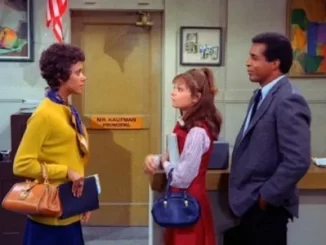Dreams are mysterious — sometimes comforting, sometimes unsettling — and often deeply symbolic. One of the most emotional types of dreams we can experience is when a deceased loved one shows up. You wake up wondering: was it a message? Was it just a memory? Or is there something more?
If you’ve had one of these dreams, you’re not alone. And yes, they do mean something.
Let’s explore what experts say about dreams of people who’ve passed away and how these nighttime visions may reflect your inner emotional world.
Dreams Are More Than Random Thoughts

Sleep is when your brain does its most fascinating work. It processes your day, solves problems in the background, and — perhaps most importantly — sorts through your emotions.
That’s why it’s completely normal for someone you’ve lost to appear in your dreams. According to Dr. Michelle King, these dreams are often part of the natural grieving process. In fact, studies show that more than half of people who’ve lost someone experience dreams about that person.
Sometimes these dreams are comforting. Other times, they stir up pain or confusion. Either way, they serve a deeper purpose: healing.
Dreams Help Us Understand Our Grief
Grief is not straightforward. There’s no finish line, and there’s definitely no manual. That’s where dreams come in — they help your brain try to make sense of loss.
Licensed grief counselor Margaret Pendergrass explains that dreaming of someone who has died is the mind’s way of processing events that still feel senseless. These “grief dreams” are your brain’s way of wrestling with complex emotions — from sadness to guilt, love to regret.
They’re not just dreams — they’re emotional echoes of a person who mattered deeply to you.
Video : 5 Meanings When You’re Dreaming About Someone Who Has Passed Away
Sometimes, It’s About Wanting to Reconnect
Have you ever dreamed of your loved one in a setting where everything felt completely normal — as if they were still alive?
According to Dr. King, that kind of dream likely reflects a desire to reconnect. Your subconscious may be revisiting a familiar comfort, a place where you still feel connected to the person.
This doesn’t necessarily mean they’re sending you a message from the beyond. More often, it means you’re craving connection or closure.
Is It a Message? Or Just Your Mind Talking?
Many people feel like their dreams of lost loved ones come with a message — a warning, a piece of advice, or even a goodbye.
While that’s a powerful thought, experts say that message likely isn’t coming from the person, but from within you.
Dr. King explains it like this: “The message is usually your own emotional voice trying to speak to you.” Maybe it’s reassurance. Maybe it’s guidance you think your loved one would have given. Either way, it’s your inner dialogue using a familiar face.
Unresolved Emotions Can Trigger Intense Dreams
Not all dreams about the dead are comforting. Sometimes they leave us shaken.
If your loved one appears angry, upset, or in distress in the dream, it could signal unresolved emotions. Maybe you didn’t get to say goodbye. Maybe there were regrets or arguments left hanging. These emotions have to go somewhere — and they often surface in your sleep.
Dreams give those buried feelings a chance to come up and be acknowledged.

Memories Resurface When You’re Ready to Process Them
Sometimes these dreams simply replay a moment or feeling from the past. They may not feel symbolic — they just feel real.
That’s because your mind is trying to make sense of old memories, possibly ones you hadn’t fully processed yet. Grief has a way of unearthing moments we haven’t revisited in years. A song, a scent, or a date on the calendar can trigger a wave of memories — and those memories can slip into your dreams.
Dream Interpretation Isn’t Exact Science — And That’s Okay
While dream interpretation has been studied for centuries — by everyone from Hippocrates to Freud — it’s not a science with clear answers. Dr. King reminds us that meaning can vary wildly depending on your culture, beliefs, and personal experiences.
What matters most is how the dream made you feel and what thoughts it stirred afterward. That’s where the real insight lies.
Grief Doesn’t Follow a Straight Line
You’ve probably heard of the five stages of grief: denial, anger, bargaining, depression, and acceptance. But grief rarely follows that path neatly. It comes in waves — unpredictable and emotional.
A dream about someone you’ve lost can make it feel like you’re starting all over again. But it doesn’t mean you’re back at square one. It means you’re still healing — and that’s okay.
Working Through the Emotions Behind the Dream
So how do you handle these dreams, especially when they’re intense?
Video : 10 Clear Signs The Universe Wants You To Be With Someone
Try using them as a signal. Your mind is waving a flag — saying pay attention. Here are a few tools that can help:
Journal about the dream: Write down every detail you remember. What was said? How did you feel? What did it remind you of?
Talk to a grief counselor: A professional can help you untangle the emotions behind the dream.
Practice mindfulness: Meditation or breathing exercises can help you stay grounded.
Take care of your body: Regular sleep, healthy meals, and movement can do wonders for your emotional state.
Create a ritual: Light a candle, write a letter, visit a place that reminds you of them. Rituals give your grief a safe place to go.
If your dreams feel overwhelming, don’t ignore them. They may be trying to tell you that something inside still needs attention.
Conclusion: Your Dreams Are Valid, Even When They’re Complicated

Dreams about someone close who has died can be deeply emotional. They’re your mind’s way of continuing the relationship, sorting through feelings, or just seeking comfort in familiar faces.
Whether you see these dreams as symbolic messages, emotional processing, or simply memories brought to life, one thing is clear: they matter. They mean you’re human. You love deeply. And you’re still learning how to live with loss.
So the next time someone you’ve lost appears in your dream, don’t panic — listen. Let the dream speak. Then gently ask yourself what part of your heart needed that moment… and how you can continue healing when you wake.


